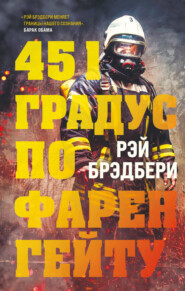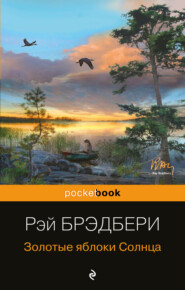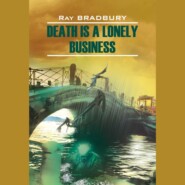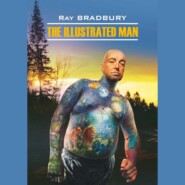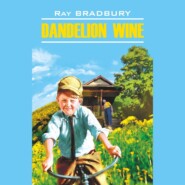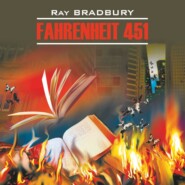По всем вопросам обращайтесь на: info@litportal.ru
(©) 2003-2024.
✖
The Illustrated Man
Автор
Год написания книги
2018
Настройки чтения
Размер шрифта
Высота строк
Поля
The man continued, ‘So we destroyed everything and ruined everything, like the fools that we were and the fools that we are. We killed millions. I don’t think there are more than five hundred thousand people left in the world, all kinds and types. And out of all the wreckage we salvaged enough metal to build this rocket, and we came to Mars in it this month to seek your help.’
He hesitated and looked down among the faces to see what could be found there, but he was uncertain.
Hattie Johnson felt her husband’s arm tense, saw his fingers grip the rope.
‘We’ve been fools,’ said the old man quietly. ‘We’ve brought the Earth and civilization down about our heads. None of the cities are worth saving – they’ll be radioactive for a century. Earth is over and done with. Its age is through. You have rockets here which you haven’t tried to use to return to Earth in twenty years. Now I’ve come to ask you to use them. To come to Earth, to pick up the survivors and bring them back to Mars. To help us go on at this time. We’ve been stupid. Before God we admit our stupidity and our evilness. All the Chinese and the Indians and the Russians and the British and the Americans. We’re asking to be taken in. Your Martian soil has lain fallow for numberless centuries; there’s room for everyone; it’s good soil – I’ve seen your fields from above. We’ll come and work it for you. Yes, we’ll even do that. We deserve anything you want to do to us, but don’t shut us out. We can’t force you to act now. If you want I’ll get into my ship and go back and that will be all there is to it. We won’t bother you again. But we’ll come here and we’ll work for you and do the things you did for us – clean your houses, cook your meals, shine your shoes, and humble ourselves in the sight of God for the things we have done over the centuries to ourselves, to others, to you.’
He was finished.
There was a silence of silences. A silence you could hold in your hand and a silence that came down like a pressure of a distant storm over the crowd. Their long arms hung like dark pendulums in the sunlight, and their eyes were upon the old man and he did not move now, but waited.
Willie Johnson held the rope in his hands. Those around him watched to see what he might do. His wife Hattie waited, clutching his arm.
She wanted to get at the hate of them all, to pry at it and work at it until she found a little chink, and then pull out a pebble or a stone or a brick and then a part of the wall, and, once started, the whole edifice might roar down and be done away with. It was teetering now. But which was the keystone, and how to get at it? How to touch them and get a thing started in all of them to make a ruin of their hate?
She looked at Willie there in the strong silence and the only thing she knew about the situation was him and his life and what had happened to him, and suddenly he was the keystone; suddenly she knew that if he could be pried loose, then the thing in all of them might be loosened and torn away.
‘Mister –’ She stepped forward. She didn’t even know the first words to say. The crowd stared at her back; she felt them staring. ‘Mister –’
The man turned to her with a tired smile.
‘Mister,’ she said, ‘do you know Knockwood Hill in Greenwater, Alabama?’
The old man spoke over his shoulder to someone within the ship. A moment later a photographic map was handed out and the man held it, waiting.
‘You know the big oak on top of that hill, mister?’
The big oak. The place where Willie’s father was shot and hung and found swinging in the morning wind.
‘Yes.’
‘Is it still there?’ asked Hattie.
‘It’s gone,’ said the old man. ‘Blown up. The hill’s all gone, and the oak tree too. You see?’ He touched the photograph.
‘Let me see that,’ said Willie, jerking forward and looking at the map.
Hattie blinked at the white man, heart pounding.
‘Tell me about Greenwater,’ she said quickly.
‘What do you want to know?’
‘About Dr Phillips. Is he still alive?’
A moment in which the information was found in a clicking machine within the rocket …
‘Killed in the war.’
‘And his son?’
‘Dead.’
‘What about their house?’
‘Burned. Like all the other houses.’
‘What about the other big tree on Knockwood Hill?’
‘All the trees went – burned.’
‘That tree went, you’re sure?’ said Willie.
‘Yes.’
Willie’s body loosened somewhat.
‘And what about that Mr Burton’s house and Mr Burton?’
‘No houses at all left, no people.’
‘You know Mrs Johnson’s washing shack, my mother’s place?’
The place where she was shot.
‘That’s gone. Everything’s gone. Here are the pictures, you can see for yourself.’
The pictures were there to be held and looked at and thought about. The rocket was full of pictures and answers to questions. Any town, any building, any place.
Willie stood with the rope in his hands.
He was remembering Earth, the green Earth and the green town where he was born and raised, and he was thinking now of that town, gone to pieces, to ruin, blown up and scattered, all of the landmarks with it, all of the supposed or certain evil scattered with it, all of the hard men gone, the stables, the ironsmiths, the curio shops, the soda founts, the gin mills, the river bridges, the lynching trees, the buckshot-covered hills, the roads, the cows, the mimosas, and his own house as well as those big-pillared houses down near the long river, those white mortuaries where the women as delicate as moths fluttered in the autumn light, distant, far away. Those houses where the old men rocked, with glasses of drink in their hands, guns leaned against the porch newels, sniffing the autumn airs and considering death. Gone, all gone; gone and never coming back. Now, for certain, all of that civilization ripped into confetti and strewn at their feet. Nothing, nothing of it left to hate – not an empty brass gun shell, or a twisted hemp, or a tree, or even a hill of it to hate. Nothing but some alien people in a rocket, people who might shine his shoes and ride in the back of trolleys or sit far up in midnight theatres …
‘You won’t have to do that,’ said Willie Johnson.
Вы ознакомились с фрагментом книги.
Приобретайте полный текст книги у нашего партнера:
Приобретайте полный текст книги у нашего партнера:






